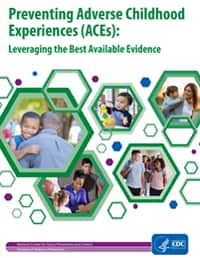Adverse Childhood Experiences

CDC is committed to preventing, identifying, and responding to ACEs at the community, state, and national level so that all people can achieve lifelong health and wellbeing. Our goal is to create the conditions for strong, thriving families and communities where children and youth are free from harm. Read more about CDC’s ACEs Prevention Strategy.
- Strengthen economic supports for families
- Promote social norms that protect against violence and adversity
- Ensure a strong start for children
- Teach skills for healthy communication and relationships
- Connect youth to caring adults and activities
- Intervene to lessen immediate and long-term harms
Find definitions, statistics, and consequences of ACEs.
Find out more about the groundbreaking CDC-Kaiser ACE study, state-level data, and other ACEs-related research.
Each state snapshot includes overall ACEs 2021 funding, key statistics, and examples of how states are working to prevent and mitigate ACEs.

Preventing Adverse Childhood Experiences (ACEs): Leveraging the Best Available Evidence [4 MB, 40 Pages]
This is a resource to help states and communities leverage the best available evidence to prevent ACEs from happening in the first place as well as lessen harms when ACEs do occur. It features six strategies drawn from the CDC Technical Packages to Prevent Violence.
To receive email updates about this topic, enter your email address: